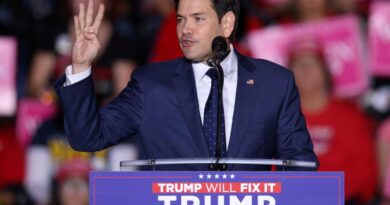Close the Consumer ‘Watchdog’ That’s Targeting US Businesses

Understanding that free counsel is valued at precisely what you pay for it, let me share some thoughts with Treasury Sec. Scott Bessent as he embarks on his new role as acting director of the Consumer Financial Protection Bureau.
This bureau, initially the brainchild of Sen. Elizabeth Warren, was founded on the flawed notion that consumer protection in the financial sector should be free from political influence.
In Washington terminology, this translates to an agency that operates without accountability to elected officials — or, by extension, the electorate that selected them.
That was problematic enough. However, under the leadership of Richard Cordray, who was appointed by Barack Obama, the bureau concluded that being “above politics” also implied it could act “above the law.”
For instance, the CFPB sought to regulate automotive dealerships, despite a statutory prohibition against such actions.
Additionally, it began practicing “regulation by enforcement”: pursuing legal actions against financial service providers for previous practices claiming that what was once acceptable would become illegal in the future.
The bureau also engaged in various forms of Operation Chokepoint, discouraging banks from doing business with entirely lawful enterprises—like pawn shops and gun manufacturers—simply because they didn’t align with the Democrats’ preferences.
Moreover, it sent out “civil investigative demands”—essentially, government-funded fishing expeditions—to financial service entities, without explaining the reason for the inquiries.
But you get the gist.
By the time President Trump took office the first time, the CFPB had morphed into something resembling a progressive vigilante shakedown operation rather than a legitimate government regulator.
When he asked me to assume the role of acting director in 2018, his directives were unequivocal: Rein the agency in.
And that’s exactly what we accomplished. More specifically, we simply commenced adhering to the law, putting a stop to the CFPB’s leftist excesses.
The left responded with outrage, insiders within the bureau sought to sabotage our efforts, the media launched smear campaigns against my team, and Warren threatened to investigate me.
However, industry leaders expressed gratitude for restoring rationality to the system. And, remarkably, consumer protection remained intact.
I hope the president’s directives to Acting Director Bessent are equally clear, but even broader: Close the agency down.
We contemplated that possibility during my tenure at the CFPB, including the option of simply locking the office doors. We thought that compensating people to do nothing was preferable to paying them to infringe the law.
But we were uncertain of our authority to proceed, and when I consulted the White House attorneys, they reminded me that we were “up to our eyeballs in the Mueller investigation” and simply lacked the bandwidth to contemplate shutting down the CFPB concurrently.
Today, there is no Mueller investigation, and I sense a significant eagerness from the Trump team to pursue disruptive change within the federal government compared to six or seven years ago.
If substantial changes are to occur at the CFPB, they must emanate from the bureau’s leadership itself — and from the White House.
In theory, Congress could eliminate the agency through the Dodd-Frank Wall Street Reform and Consumer Protection Act, the 2010 legislation established in response to the 2008 financial crisis.
However, that would require 60 votes in the Senate, which is quite unlikely.
Senate Republicans could include its dissolution in a reconciliation bill to bypass the 60-vote requirement, but the chances of such a maneuver succeeding are questionable, at best.
While we wait for 60 senators to recognize the monstrosity that the bureau has become, Congress could take steps to deprive the CFPB of resources.
Unlike any other federal agency, the bureau’s funding comes directly from the Federal Reserve — not from congressional appropriations.
If legislators were to reduce the funds allocated to the CFPB from the Fed or shift to funding it through the standard appropriations process, that would advance the cause.
Of course, the drawback to this approach is that resources can always be restored when Democrats are in charge of the bureau.
It’s time to break that cycle for good.
The landscape in 2025 differs significantly from 2018—both in Washington and across the nation.
Trump decisively reclaimed the presidency, and the electorate that supported him desires a Washington that simply functions with greater clarity.
Trump and Bessent are poised to achieve something no White House has accomplished in nearly a century: Closing a government agency.
My suggestion: Seize this opportunity.
Mick Mulvaney served as White House chief of staff and acting director of the CFPB during President Trump’s first term.



